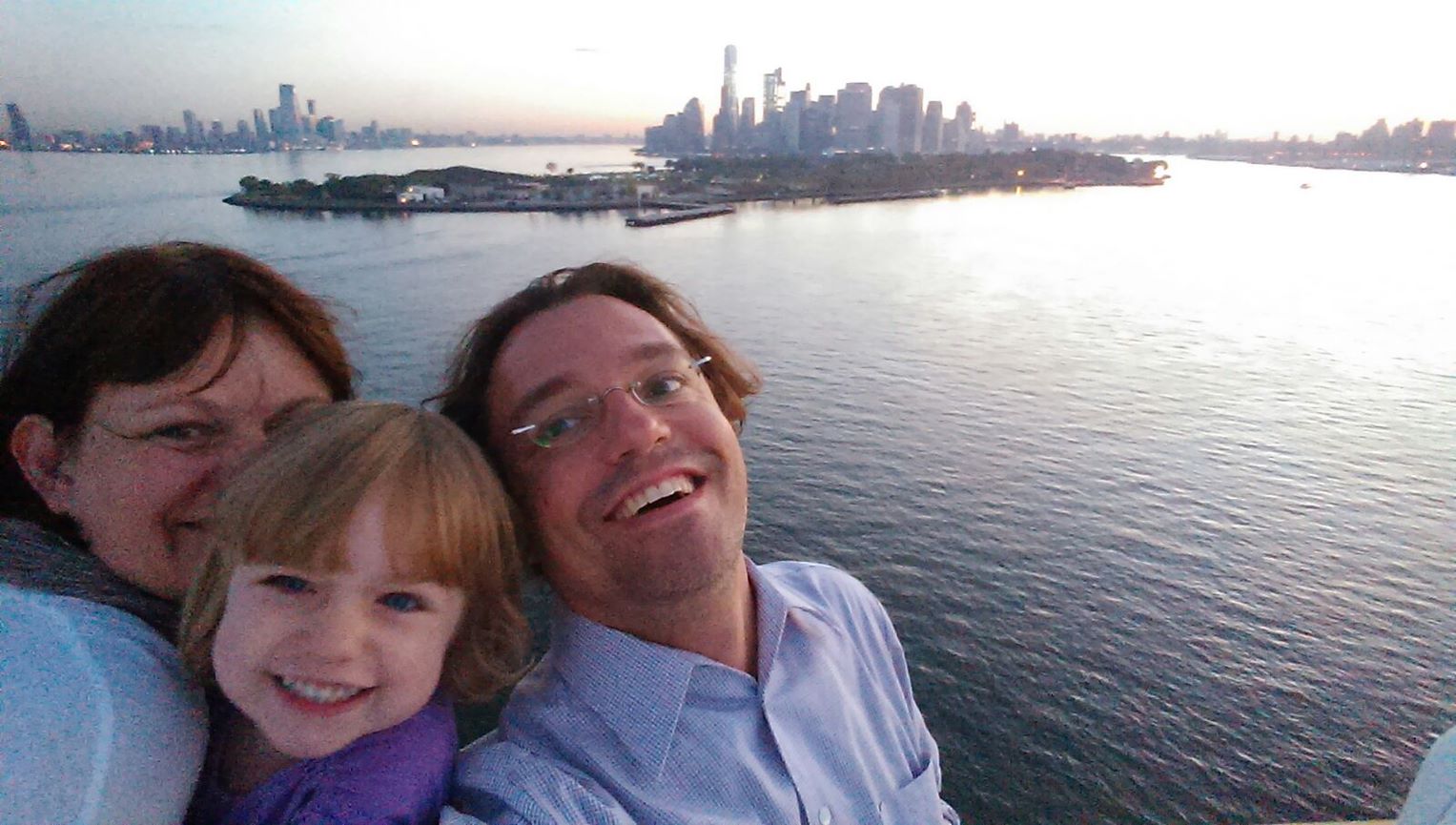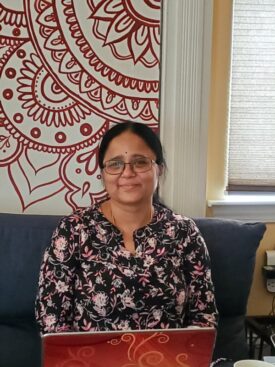
When professor of Landscape Architecture Anette Freytag, a native Austrian, immigrated to the U.S. from Zurich with her husband and then three-year old daughter, they did a transatlantic crossing, sailing into NY Harbor.
When Mukund Karwe, distinguished professor and dean of international programs first arrived on the Rutgers-New Brunswick campus as a graduate student in 1981, he was struck by how sparsely populated the campus and the surrounding areas were and was even more shocked when his international student adviser said that New Jersey was one of the most densely populated states. “Looking back,” reflected Karwe, “that should not have been surprising for someone like me coming from Mumbai, where if someone steps on your toes in a crowded train packed with people like sardines in a can, you should not be expecting an apology; you just have to move on.”
Mike Green, director of SEBS Office of Communications & Marketing, had quite the opposite experience when he arrived for graduate studies at Rutgers-Newark in 1989 from Adelaide, South Australia, “Like most international students,” said Green, “there was a substantial culture shock especially in relation to the density of housing and in general just the sheer volume of people.”

Sanjib Bhuyan, associate professor, Dept. of Agricultural, Food, and Resource Economics, a native of North India, arrived in the U.S. in 1990. While he had to learn how to drive in the snow, sleet, and ice, he also discovered the joys of snow.
Whether it’s culture shock at the surroundings, how laid back and informal American culture is, the embarrassing but ultimately funny moments of language faux pas, or the anxiety of encountering cars driving on the “wrong” side of the road, the experience of landing in a new country is universal—and at the same time unique—to those who study and work abroad.
International Education Week (IEW) 2020 is being celebrated November 16 – 20. It is a joint initiative between the U.S. Department of State and the U.S. Department of Education, which provides an opportunity to promote programs that prepare Americans for a global environment and attract future leaders from abroad to study, learn, and exchange experiences. This celebration highlights the benefits of international education through the stories and experiences of alumni and institutions who participated in international exchange programs.
In recognition of IEW, the SEBS Office of International Programs (OIP) is sharing stories of faculty and staff members when they first arrived in the U.S. “Although these stories are about coming to the U.S. for the first time, I am sure we all have similar experiences that we can relate to, whether that is studying abroad, starting a new job, moving to New Jersey to attend Rutgers, or something else,” said Hyunjin Yeo, program coordinator, OIP.
Yeo–whose first visit to the U.S. was in 2004 when she participated in the International Children’s Festival at Wolf Trap National Park in Virginia as a performer from South Korea—made the commitment to come back and live in the U.S. one day. She returned in 2008 for a year of study at Baldwin-Wallace University in Ohio, and after returning to Korea to finish her undergraduate degree, she again returned to pursue her graduate studies in ethnomusicology, receiving her M.A. from the University of Wisconsin-Madison and her Ph.D. from the University of Maryland, College Park.
“The experience I had at Wolf Trap and the eight years I spent in the U.S. as an international student are why I firmly believe in the importance of international education,” said Yeo. “It can be overwhelming and even scary at the beginning, but after all it presents us an eye-opening experience and broadens our perspectives.” Yeo’s favorite quote by Saint Augustine is ‘the world is a book, and those who do not travel read only one page.’ “It does not mean that you have to travel internationally. Look around, you might find something unexpected in your backyard,” said Yeo.

Chitra Ponnusamy, teaching instructor and director, undergraduate program in Food Science, discovered what a small world it is. “At Rutgers, I met with Dr. Aparna Zama, in a committee meeting and very soon learned we studied in the same high school in Chennai, a city in South India. We did not know each other back then. It is a small world, indeed.”
Megan Francis, assistant dean of international programs, OIP, commented, “International Education Week is an opportunity for us to come together as a university and celebrate our global engagement. During these unprecedented times, with borders closed and tensions running high, it is more important than ever to remember our Jersey Roots and Global Reach. New Jersey is inherently a global community, a fact that is all the more evident at Rutgers. We celebrate the diversity of thought and innovation that is a natural outcome of internationalization.”
The theme for IEW 2020 is “engage, resilient, and global,” which reflects the challenges due to the COVID-19 health pandemic we’re experiencing as a global community.
“Today we focus on resiliency while celebrating the stories of our Rutgers global community,” said Francis. “Resilience is defined as the capacity to recover quickly from difficulties; toughness. It is easy to associate this concept with the current global pandemic – if we are not resilient, then what are we? And yet, resiliency is a daily ritual for any international traveler. Leaving home is never easy but leaving home to travel to a new country and engage in a new culture takes a different kind of grit. It is with this in mind that we share stories from our staff and faculty. Their stories are part of what makes Rutgers and SEBS an engaged, resilient, and global community.”
“Although COVID-19 completely reshaped what I envisioned for this year’s IEW, what has not changed is our commitment to promoting international education on our campus,” added Yeo. “As this year’s theme goes, we will stay engaged and resilient!”
SEBS Office of International Programs will be sharing reflective and amusing stories from faculty and staff on Instagram (@sebsintl), Facebook, and OIP website.
Some additional resources and information can be found at Rutgers Global.
International Education Week has been celebrated for one week in November since the year 2000. The week usually coincides with the release of the IIE Open Doors report, which is a national survey of university international engagement through student mobility. This survey covers international student data (where students are from, what they study, how much money they bring into the US) and study abroad data (where students are going, what they are studying, etc.).

